Jean
Shepard

-
Inducted2011
-
Born
November 21, 1933
-
Died
September 25, 2016
-
Birthplace
Pauls Valley, Oklahoma
From Oklahoma to California
During the 1950s, few women managed to break through industry barriers to enjoy full-blown country careers, but Jean Shepard did just that. She rose to stardom on the West Coast rather than through the Grand Ole Opry, and she won acceptance not with smooth singing but with hard-edged honky-tonk vocals and songs that dealt frankly with the pain and pleasures of romantic love. No mere “girl singer” with a band or part of a husband-wife team, Shepard was one of the first women in country music to front her own tours, thus helping to pave the way for artists such as Loretta Lynn and Tammy Wynette in the 1960s and beyond.
Shepard was born Ollie Imogene Shepard on November 21, 1933, in rural Pauls Valley, Oklahoma, where her large family listened to Bob Wills’s radio shows—broadcast over Tulsa station KVOO—and to WSM’s Grand Ole Opry. In the mid-1940s the Shepards moved to Visalia, California, some eighty miles from Bakersfield. As a high school student, Jean sang and played upright bass in the Melody Ranch Girls, an all-female group she organized with friends.
Shepard came to the attention of Capitol Records powerhouse Hank Thompson, who recommended her to his producer, Ken Nelson. Shepard signed with Capitol in 1952.
Songs
00:00 / 00:00
00:00 / 00:00
00:00 / 00:00
Friendship with Ferlin Husky
Shepard’s first release, 1952’s “Crying Steel Guitar Waltz,” co-billed her with steel guitar ace Speedy West and did not chart; however, her second release, “A Dear John Letter”—recorded May 19, 1953, and rushed to market on June 15—shot to #1 in Billboard’s country rankings and held that position for six weeks during the hit’s twenty-three-week chart run. With Ferlin Husky contributing a recitation of a Korean War soldier reading his former sweetheart’s goodbye letter, the record became a #4 pop hit as well, firmly establishing both rising singers as artists to be reckoned with.
A follow-up duet, “Forgive Me John,” was a Top Five country disc later the same year and made Shepard and Husky a hot ticket in the fertile Bakersfield and Los Angeles country scenes as well as on the road. Since Shepard was not yet twenty-one, her parents made Husky her guardian so the two performers could tour together. Shepard and Husky strongly supported each other professionally, recorded additional duets, and developed a lifelong friendship.
From that point forward, Shepard recorded one vibrant honky-tonk single after another, many featuring Bill Woods’s band out of Bakersfield, which included guitarist Buck Owens. In January 1955, Shepard was part of the cast of the inaugural Ozark Jubilee telecast on ABC.
No mere “girl singer” with a band or part of a husband-wife team, Jean Shepard was one of the first women in country music to front her own tours, thus helping to pave the way for artists such as Loretta Lynn and Tammy Wynette in the 1960s and beyond.
“Second Fiddle (to an Old Guitar)”
Music City USA, 1966
“Mercy”
Nashville Now, 1984
Photos
-
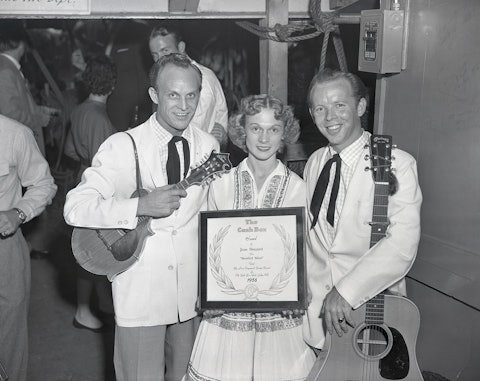
From left: Ira Louvin, Jean Shepard, and Charlie Louvin, 1956. Shepard is holding a Cash Box Award for her recording of “Satisfied Mind.” Photo by Elmer Williams.
-
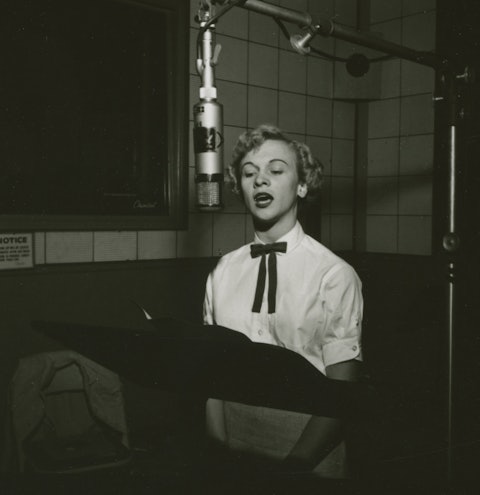
Jean Shepard at a recording session at Capitol Records, 1950s.
-
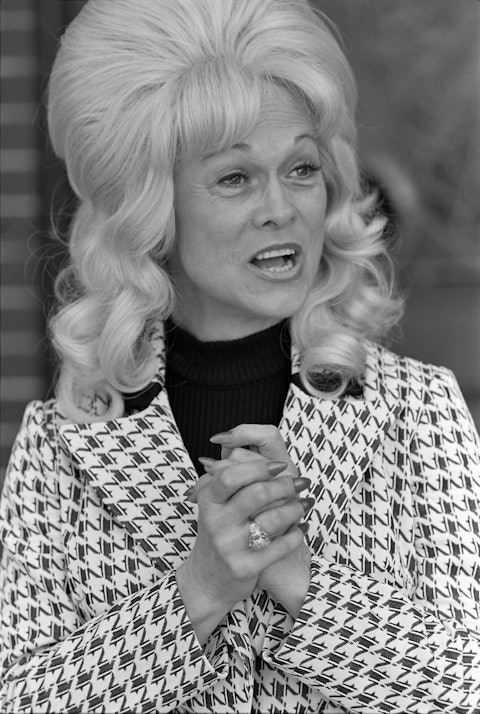
Jean Shepard, 1975. Photo by Raeanne Rubenstein.
-
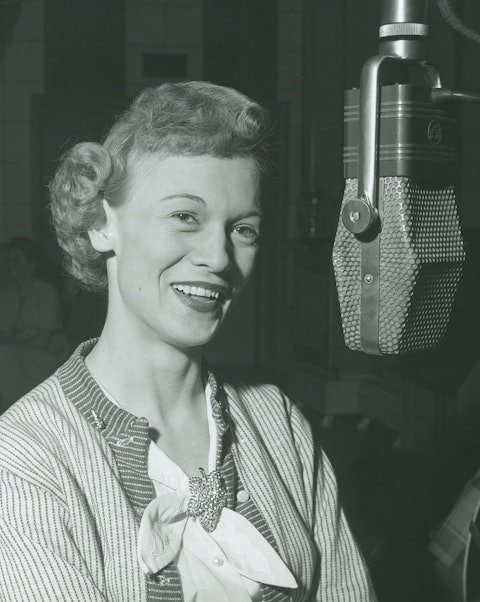
Jean Shepard at a recording session at Capitol Records in Hollywood, California, 1950s. Photo by Capitol Records Photographic Studio.
-
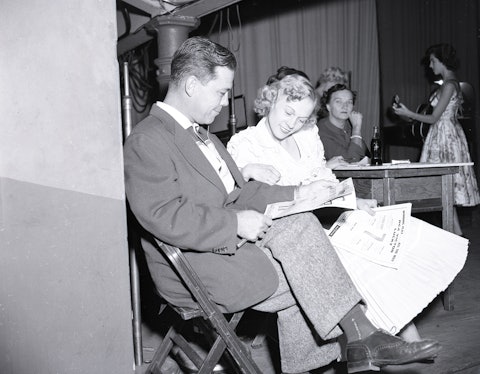
Jean Shepard and pianist Marvin Hughes, c. 1956. Photo by Elmer Williams.
-
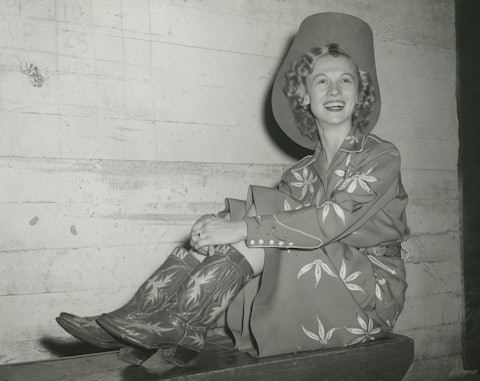
Jean Shepard, 1952.
-
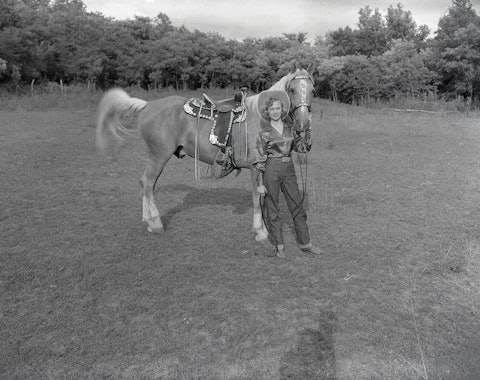
Jean Shepard, 1956. Photo by Elmer Williams.
-
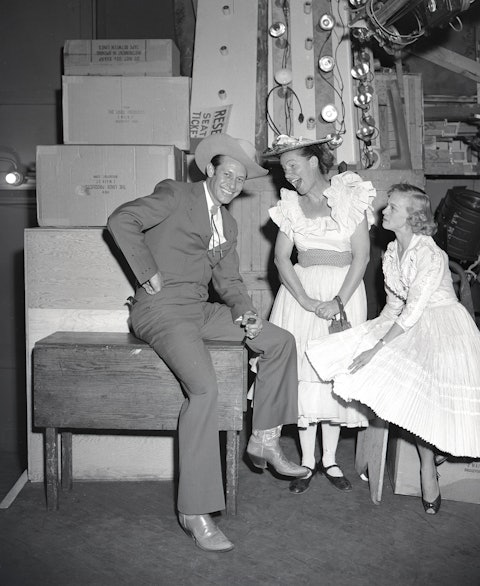
From left: Hawkshaw Hawkins, Minnie Pearl, and Jean Shepard, 1957. Photo by Elmer Williams.
-
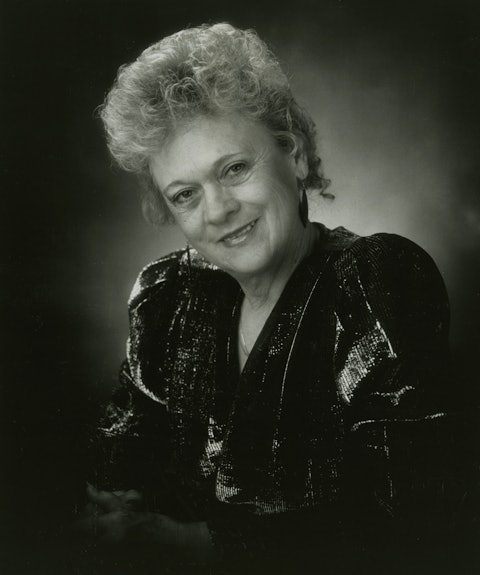
Jean Shepard, 1990. Photo by Walden S. Fabry Studios.
-
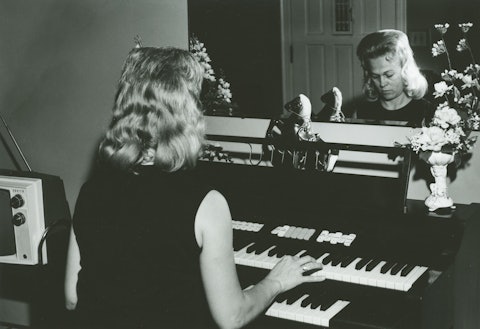
Jean Shepard at home, 1956.
Solo Breakthrough
Shepard’s breakthrough as a solo artist came in 1955: her rendition of “A Satisfied Mind” entered the Billboard country chart in June and stayed there for twenty-two weeks, peaking at #4. The flip side, the #13 hit “Take Possession,” expresses a woman’s determination to marry before starting an intimate relationship. By contrast, in Shepherd’s #4 rendition of “Beautiful Lies,” which first charted early that October, the narrator asks her lover to tell her what she wants to hear, whether he speaks truthfully or not. The Top Ten B-side, “I Thought of You,” is even more forthright: a woman tells a previous partner she envisions him even while in another’s arms.
Having already appeared on Ozark Jubilee, Shepard joined the Grand Ole Opry in November 1955. The next month, she recorded Songs of a Love Affair, possibly country music’s first concept album by a female singer.
Also joining the Opry in 1955 was West Virginia native Hawkshaw Hawkins, a honky-tonk singer known for his good looks and his rich baritone voice. Hawkins was drawn to the vivacious, attractive Shepard, and she to him, and they were married onstage in Wichita, Kansas, on November 26, 1960. Their union proved to be short, however: Hawkins perished in the same 1963 airplane crash that took the lives of Patsy Cline, Cowboy Copas, and Cline’s manager, pilot Randy Hughes. Overwhelmed, Shepard put her career on hold for several months. In 1964, however, she came back strong with the #5 hit “Second Fiddle (to an Old Guitar),” her first charting record since 1959.
Shepard placed at least one song on the charts every year through 1978 as she continued to explore romantic love from a woman’s point of view. Highlights included “Many Happy Hangovers to You” (#13, 1966), which confronts a wayward, hard-drinking spouse; “Then He Touched Me” (#8, 1970), the sensual story of a woman who had all but given up on love; and “Another Lonely Night” (#12, 1971), in which a vulnerable woman vows to take yet another chance on an untrustworthy partner.
Shepard’s final Top Ten hit came in 1973 with the Bill Anderson–penned “Slippin’ Away,” which voices a last-ditch effort to save a troubled relationship. It was her first hit for United Artists Records, where she remained through 1977. She later recorded for a series of smaller labels.
A Grand Ole Opry Mainstay
A Grand Ole Opry mainstay, Shepard was for years the longest continuously tenured Opry star. She celebrated her fiftieth year with the historic show in 2005 and continued to delight audiences.
“She is real. There is nothing phony about Jean Shepard,” said fellow Opry member Jan Howard. “When she is onstage fronting her own band, she is in command, not only of the band, but the audience as well. . . . And if she ‘goofs,’ she laughs and carries on; she’s a trouper. It’s a real pleasure to share the stage with her.”
Shepard married bluegrass musician and road manager Benny Birchfield in 1968. She died in Nashville on September 25, 2016, of Parkinson’s disease.
— Daniel Cooper
Adapted from the Country Music Hall of Fame® and Museum’s Encyclopedia of Country Music, published by Oxford University Press



